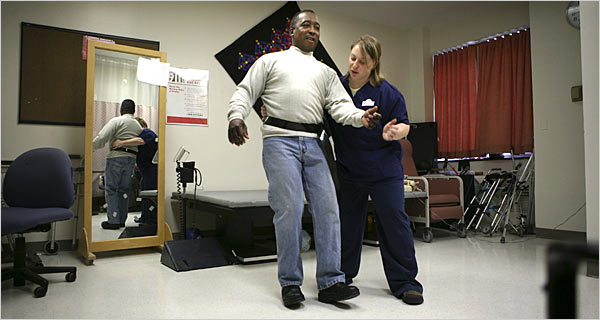The University of Waterloo and Waterloo-based Pervasive Dynamics announced yesterday that they’re teaming up to develop and test wearable tech that can improve stroke rehabilitation. The joint research initiative will be run through the Advanced Aging ResearCH Centre (ARCH) at the University of Waterloo.
“Advanced wearable sensors are the next generation of personalized health care,” said Professor Bill McIlroy, of the Faculty of Applied Health Sciences at UW, and the head of ARCH. “They enable us to gain insights that are just not available through off-the-shelf products.”
The partners are hoping that new tech will allow researchers to capture sophisticated data about a stroke victim’s cardiovascular and nervous systems, balance and gait. The intent is to generate tailored diagnostic reports to improve their physical and mental rehabilitation.
The potential impact is significant, as stroke is the third major cause of death in Canada, with approximately 50,000 Canadians suffering a stroke each year.
“From the management of chronic disease, to fall prevention and mobility strategies, health wearables have the potential to make a huge difference for the elderly,” said Muhammad Khan, founder and CEO of Pervasive Dynamics.
“If we can get technologies like these in the hands of the public and practitioners we can significantly reduce the impact and burden of an aging population on the Canadian health-care system by providing clinicians with more data on which to base health-care decisions.”


